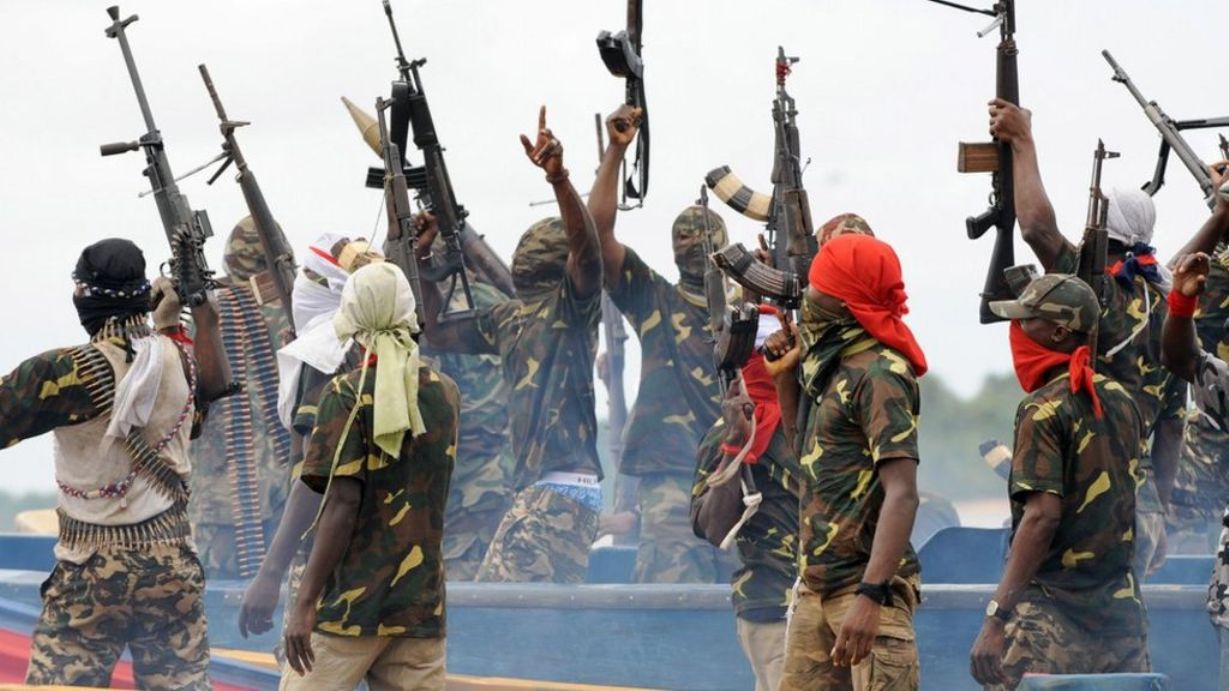Nigeria has been shaken by new threats made by Niger Delta militants to renew attacks on oil installations and cripple output in OPEC’s largest African producer.
The Niger Delta Avengers (NDA) — a group of rebels responsible for the bulk of the attacks on Nigeria’s oil infrastructure — have vowed to commence bombing of oil installations across the Niger Delta to protest the government’s neglect of the region.
“This operation shall be coded ‘Operation Humble’ aimed at bringing down targeted oil installations in the Niger Delta capable of humbling the economy into permanent recession,” NDA said in a statement published on its website on June 26.
These militants attacked many oil fields and terminals in 2016 pushing the country’s production to as low as 1.4 million-1.5 million b/d.
Nigeria has seen its output fall sharply since early 2020 due to the oil price crash amid the coronavirus pandemic and has been adhering to OPEC+ output cuts.
The country has the capacity to produce around 2.2 million-2.3 million b/d of crude and condensate, but production has been averaged around 1.64 million b/d so far in 2021, according to S&P Global Platts estimates.
Buhari reacts
Worried by the possible implication of the fresh militant threat, President Muhammadu Buhari has reacted swiftly, saying his government is addressing the concerns of the Niger Delta communities and the militants.
“In addressing your call for immediate restructuring, the National Assembly whose responsibility it is to ensure that our constitution responds to the call for a restructured Nigeria, has already concluded regional consultations and as soon as they finalize the process, necessary action would not be delayed on my part,” the Buhari government said in a June 27 statement.
Buhari had retained a presidential amnesty program for militants to maintain peace in the Niger Delta in place since 2009, but industry officials continued to express concerns that militancy might be picking up again. There has been a steady increase in pipeline sabotage attacks in the past few months.
The introduction of the program in 2009 helped rein in activity that had caused extensive damage to Nigeria’s oil infrastructure. There is also a danger that some groups might opt out of the program leading to more militancy.
Production setbacks
Nigeria’s oil production and capacity has also faced technical and operational issues so far in 2021. A recent increase in pipeline leaks and sabotage have added to these issues, according to several industry sources.
In the last six months, many of its large oil fields especially those in the Niger Delta like Forcados, Bonny, Escravos, Brass River and Qua Iboe and some offshore fields such as Bonga, Usan, EA, have been pumping below normal levels due to either technical, or maintenance issues.
There has also been an increase in leaks at some of the country’s key pipeline networks. Some leaks have been caused by an increase in pipeline sabotage, while others are down to fragile and aging infrastructure, which needs urgent rehabilitation work.
READ ALSO: Nothing would stop planned Lagos protest – Sunday Igboho
Production growth has also been threatened by fiscal stress and the lack of regulatory reforms. The rise of kidnappings and other security threats in the oil-producing south are also expected to deter investment.
S&P Global Platts Analytics revised down its crude supply forecast for the second half of 2021 by around 130,000 b/d to 1.8 million b/d.
Nigerian crude loadings have been “showing consistently lower volumes on recent pipeline issues,” and with “violence rising in the southeast” in the country, downside risks are growing, it said in a recent note.
Oil exports remain the mainstay of the Nigerian economy. Fallen output and drop in global prices saw the country slipped into economic recession first in 2016 and also in 2020.













